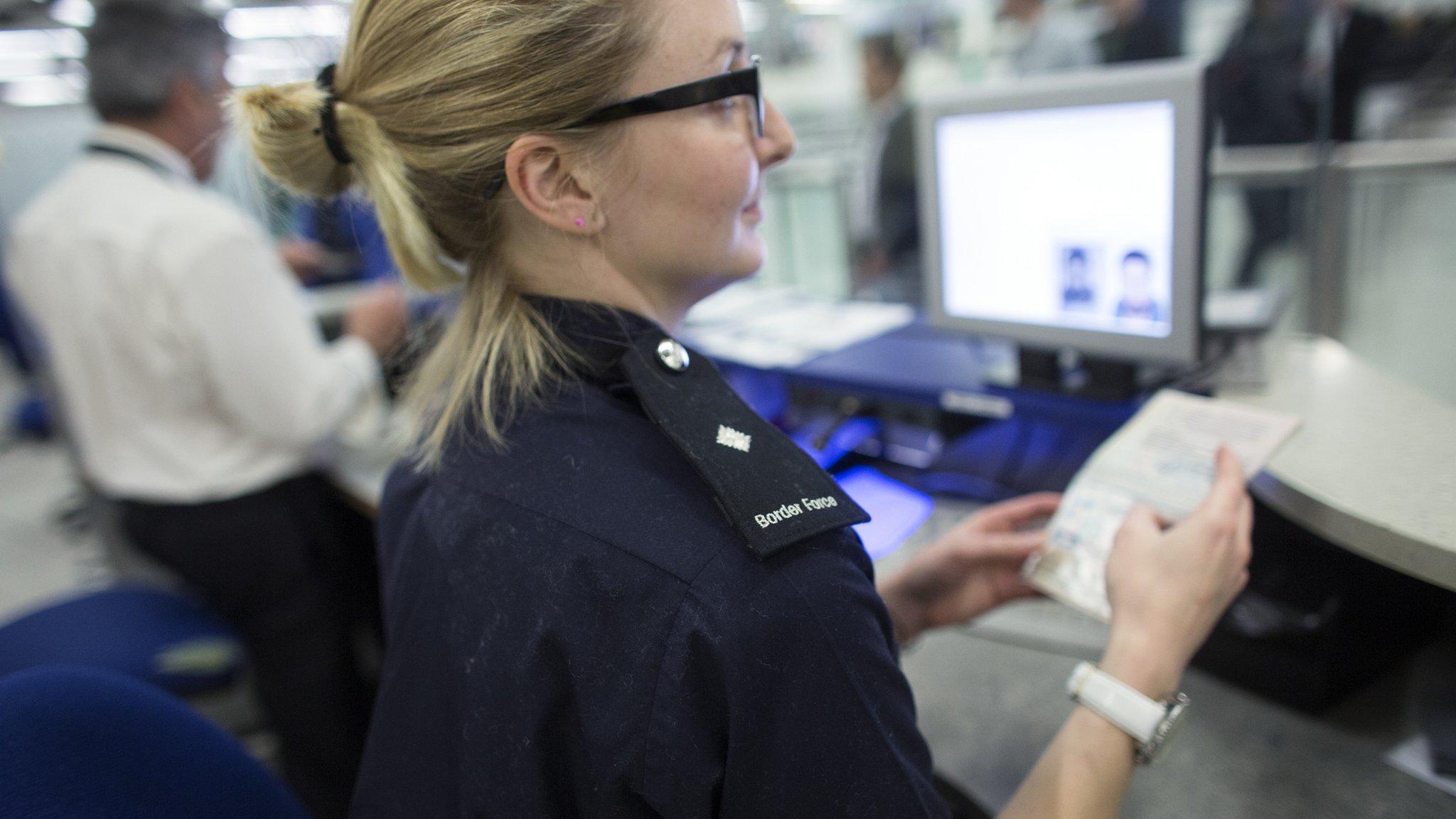Immigration target is 'an ambition', say Conservatives
- Published
- comments
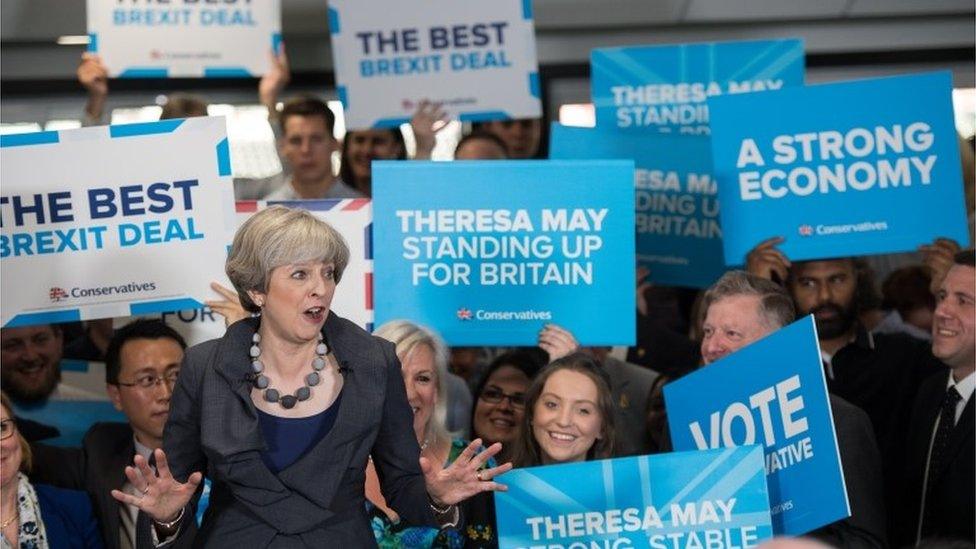
The Conservatives have denied there is any confusion in their immigration policy after Theresa May signalled she wanted to cut numbers to less than 100,000 a year by 2022.
The target, which is in the party's manifesto but without a timeframe, has not been met since it was set in 2009.
Brexit Secretary David Davis said the Tories would "aim" to hit the target in five years - but could not promise.
Jeremy Corbyn says he will make no promises about cutting migration.
The Conservatives have given a general election pledge to get "net migration" - the difference between those coming to the UK and those leaving - down to "tens of thousands a year".
Asked about the pledge on the BBC's Daily Politics on Thursday, Policing Minister Brandon Lewis said: "We want to see migration levels come down to sustainable levels, which we think is tens of thousands, over the course of the next parliament."
Mrs May, who was asked to confirm the comments later as she campaigned in Yorkshire, said: "That's what we're working for.
"We're working to bring immigration down to the tens of thousands, but having been there as home secretary for six years, this isn't something that you can just produce the magic bullet that suddenly does everything - what you have to do is keep working at it."

But Brexit Secretary David Davis sounded a more cautious note on told BBC's Question Time that the figure was "the aim, but we can't promise within five years".
He added: "We would like to do it in the Parliament but I think it will be dictated by a number of things.
"The economy, the speed with which we can get our own people trained up, to take the jobs, the changes in the welfare to encourage people to work... a whole series of things designed to ensure that this is an economically successful policy."
Asked again whether the aim was to do so within five years, he replied: "The aim yes, but we can't promise within five years."
A Conservative source denied there was any confusion or disagreement over the party's position, stressing that it was "the only party committed to controlling immigration".
"We have always been clear that it is our ambition to bring net migration down over time," the source told the BBC. They denied that Theresa May had set out a firm timetable.
But BBC political editor Laura Kuenssberg said the prime minister's comments were significant because it was the first time she had gone anywhere near setting a timetable.
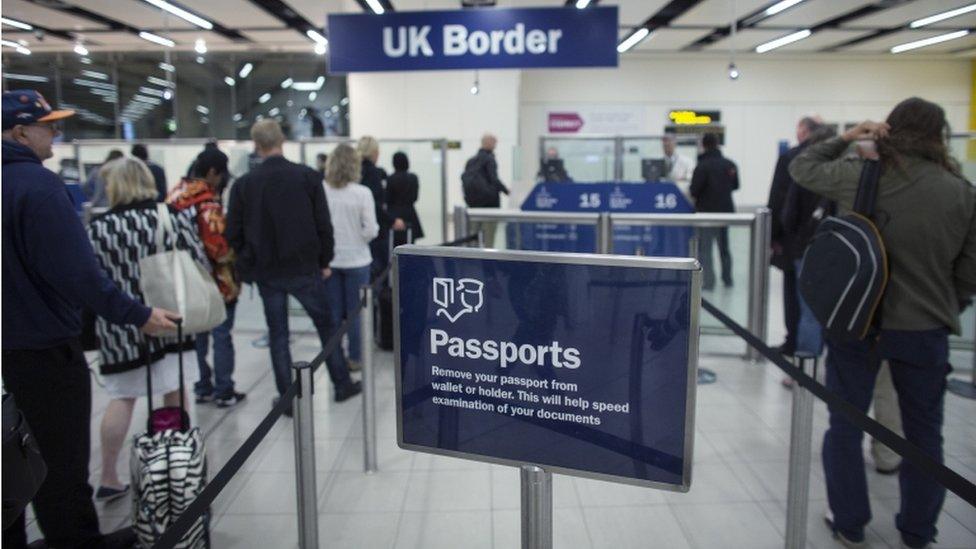
The pledge to reduce net annual migration to the tens of thousands was in the 2010 and 2015 Tory manifestos.
Neither Mrs May or her predecessor as prime minister, David Cameron, has come close to meeting that target.
The most recent figure was 248,000. The last year it was below 100,000 was 1997.
Despite this, the target has been retained in the 2017 manifesto, external.
Jeremy Corbyn has said he will make no "false promises" about cutting migration if Labour wins the election - but he was also clear that the UK had a skills shortage and that had to be met from somewhere.
"If we didn't have migrant workers either from outside Europe or within Europe working in our National Health Service... it would be in an even worse state than it is at the present time," he said.
He would "manage migration based on the needs of this country" and stop "unscrupulous" firms using cheap foreign workers to "undercut" pay, he said.
Business groups have raised concerns about the target - the CBI's director general has accused the Conservatives of a "blunt approach" which risked hobbling UK firms trying to attract overseas talent.
And former Conservative chancellor George Osborne - who was fired by Mrs May when she became prime minister and is now editor of London's Evening Standard - used an editorial in the newspaper to say ministers "haven't a clue" how they would meet it.
Ministers say the decision to leave the EU, which will bring an end to current free movement rules, will enable the UK to exert full control over its borders.
But they have stopped short of guaranteeing this will lead to a fall in migration from the EU.
Correction: An earlier version of this report gave a figure of 273,000 for net migration - the latest figure is 248,000.
- Published2 June 2017
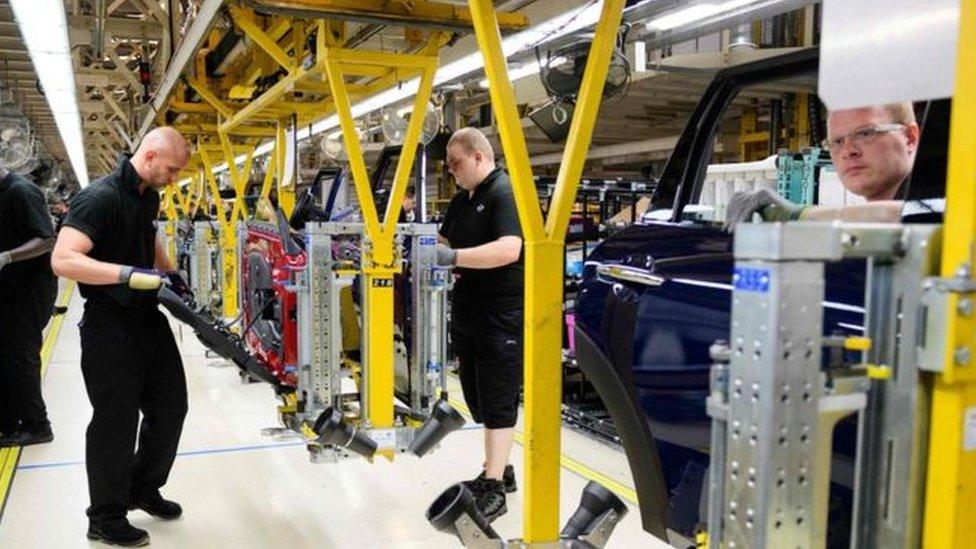
- Published20 May 2017
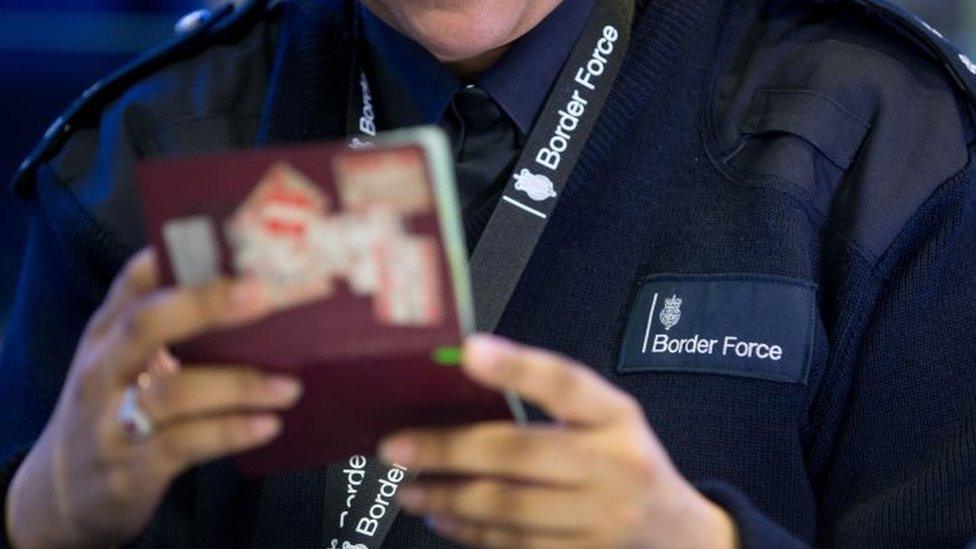
- Published19 May 2017
